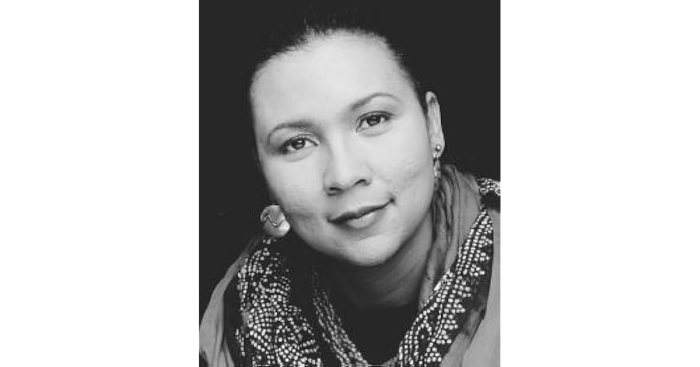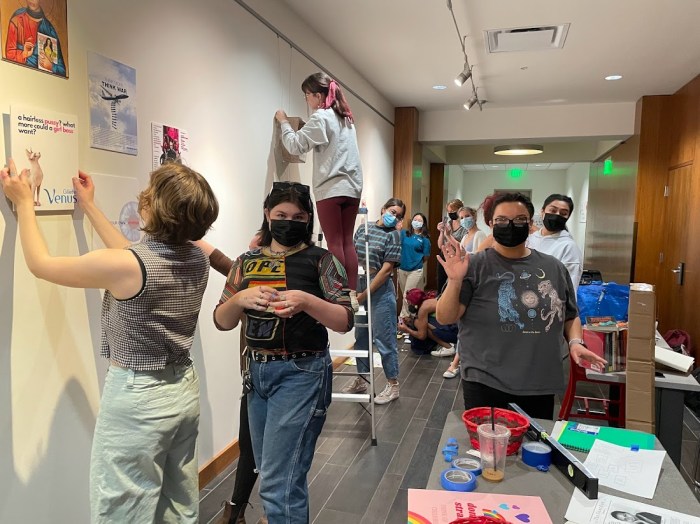Theory as a liberatory practice is a transformative approach that harnesses the power of critical inquiry to challenge oppressive structures and empower individuals and communities. Rooted in a rich history of social justice movements, this concept has become a cornerstone of liberation struggles worldwide.
Drawing from diverse disciplines such as sociology, philosophy, and education, theory as a liberatory practice offers a framework for understanding and dismantling systems of oppression. By fostering critical consciousness, it empowers individuals to recognize and resist the forces that perpetuate inequality and marginalization.
Defining Theory as a Liberatory Practice
Theory as a liberatory practice is a concept that emerged from the critical social sciences and humanities in the 1960s and 1970s. It is based on the idea that theory can be used as a tool to challenge and change oppressive social structures and create a more just and equitable society.
The historical and theoretical underpinnings of theory as a liberatory practice can be traced back to the work of critical theorists such as Theodor Adorno, Max Horkheimer, and Herbert Marcuse. These theorists argued that theory could be used to critique the existing social order and reveal the ways in which it oppresses individuals and groups.
They also argued that theory could be used to develop strategies for social change.
Examples of how theory has been used as a tool for liberation include the work of Paulo Freire in the field of education, the work of Audre Lorde in the field of feminist studies, and the work of Edward Said in the field of postcolonial studies.
Methods and Practices of Theory as Liberation

Theory as a liberatory practice employs a range of methods and practices to challenge oppressive structures and empower marginalized communities. These methods seek to deconstruct power dynamics, foster critical consciousness, and promote social transformation.
One prominent method is participatory action research, which involves collaboration between researchers and community members to identify and address social issues. This approach empowers communities by giving them agency in the research process and enables them to develop solutions that are tailored to their specific needs.
Example of Participatory Action Research
In Brazil, the Movimento dos Trabalhadores Rurais Sem Terra (MST) used participatory action research to empower landless peasants in their struggle for land rights. The MST collaborated with researchers to document the peasants’ experiences and develop strategies for land redistribution.
This research helped to raise awareness of the peasants’ plight and contributed to the MST’s successful land reform campaign.
Another Method: Feminist Theory
Feminist theory provides a critical lens for analyzing gender inequality and oppression. It challenges traditional notions of femininity and masculinity, exposes the ways in which gender roles are socially constructed, and advocates for the empowerment of women.
Effectiveness of Liberatory Theory Practices
The effectiveness of theory as a liberatory practice depends on several factors, including the specific context, the methods employed, and the level of community engagement. However, research has shown that liberatory theory practices can be effective in raising awareness, challenging oppression, and promoting social change.
The Role of Critical Consciousness in Theory as Liberation
Critical consciousness is a fundamental component of theory as a liberatory practice. It refers to the process of becoming aware of the oppressive structures and ideologies that shape our lives and the world around us. This awareness empowers individuals and communities to challenge and transform these structures, leading to liberation and social justice.
Critical consciousness empowers individuals by enabling them to understand the root causes of their oppression and to recognize their own agency in overcoming it. By understanding the mechanisms of oppression, individuals can develop strategies for resistance and empowerment. They can challenge dominant narratives, question authority, and envision alternative possibilities.
Fostering Critical Consciousness through Theory, Theory as a liberatory practice
Theory plays a crucial role in fostering critical consciousness. It provides a framework for understanding the complex social, political, and economic systems that perpetuate oppression. By engaging with theory, individuals can gain insights into the historical and contemporary processes that have shaped their lives and the lives of others.
- Paulo Freire’s Pedagogy of the Oppressed: Freire’s work emphasizes the importance of critical dialogue and reflection in fostering critical consciousness. Through dialogue, individuals can challenge their own assumptions, learn from others, and develop a deeper understanding of the world.
- Feminist Theory: Feminist theory critiques the patriarchal structures that oppress women and other marginalized genders. By understanding the ways in which gender shapes our experiences, individuals can challenge gender norms and work towards gender equality.
- Critical Race Theory: Critical race theory examines the role of race in shaping social, political, and economic institutions. It helps individuals understand the systemic nature of racism and its impact on people of color.
These are just a few examples of how theory can be used to foster critical consciousness and empower individuals and communities in the pursuit of liberation.
Challenges and Limitations of Theory as Liberation

Theory as a liberatory practice is not without its challenges and limitations. One of the main challenges is the potential for unintended consequences. When theory is used to justify oppressive practices, it can have the opposite effect of liberation. For example, the theory of Social Darwinism was used to justify colonialism and racism in the 19th and 20th centuries.Another
challenge is the difficulty of translating theory into practice. Even if a theory is sound, it can be difficult to apply it in the real world. This is because theory is often abstract and general, while the real world is complex and specific.
As a result, it can be difficult to know how to apply theory in a way that is effective and meaningful.Finally, theory as a liberatory practice can be limited by its own assumptions. Every theory is based on a set of assumptions about the world.
These assumptions may not be true in all cases, and they can limit the theory’s ability to be applied to a wide range of situations.
Alternative Approaches to Liberation
Given the challenges and limitations of theory as a liberatory practice, it is important to consider alternative approaches to liberation. One alternative approach is praxis. Praxis is a combination of theory and practice that is used to bring about social change.
Praxis involves reflecting on the world, taking action to change it, and then reflecting on the results of that action. This process can help to overcome the challenges of theory as a liberatory practice by ensuring that theory is grounded in the real world and that it is used to bring about positive change.Another
alternative approach to liberation is community organizing. Community organizing is a process of building relationships and power within a community in order to bring about social change. Community organizing is based on the belief that people have the power to change their own lives and communities.
It involves working with people to identify their needs, develop strategies for change, and take action to achieve their goals.
Future Directions for Theory as Liberation

Theory as a liberatory practice is constantly evolving, shaped by emerging trends and innovative approaches. As we look to the future, several key directions are likely to shape the field:
One emerging trend is the increasing use of technology to facilitate liberation. Digital tools and platforms can empower marginalized communities, providing access to information, resources, and networks that were previously unavailable. For example, social media has been used to organize protests, raise awareness about social justice issues, and connect activists across borders.
Another important direction is the focus on intersectionality. Theory as liberation recognizes that oppression is often multifaceted, and that liberation requires addressing the interconnectedness of different forms of discrimination. Intersectionality allows us to understand how systems of power and privilege operate across multiple axes of identity, such as race, gender, class, and sexuality.
The Role of Critical Consciousness
Critical consciousness is a key component of theory as liberation. It involves recognizing and understanding the ways in which power and oppression operate in society, and developing a critical awareness of one’s own position within these systems. Critical consciousness is essential for empowering individuals and communities to take action for social change.
In the future, theory as liberation is likely to continue to emphasize the importance of critical consciousness. This will involve developing new and innovative ways to promote critical thinking and empower individuals and communities to challenge oppressive systems.
Challenges and Limitations
While theory as liberation has the potential to be a powerful tool for social change, it also faces a number of challenges and limitations. One challenge is the difficulty of translating theory into practice. It can be difficult to apply theoretical concepts to real-world situations, and to develop effective strategies for social change.
Another challenge is the resistance that theory as liberation often encounters from those in power. Those who benefit from the status quo often have a vested interest in maintaining the existing system, and may resist efforts to challenge it. This resistance can take many forms, from outright repression to more subtle forms of co-optation and assimilation.
Conclusion
Theory as liberation is a powerful tool for social change, but it is also a complex and challenging practice. As we look to the future, it is important to be aware of the potential directions for the field, as well as the challenges that it faces.
By continuing to develop and refine our theories and practices, we can work towards creating a more just and equitable world.
Answers to Common Questions
What is the key principle behind theory as a liberatory practice?
Theory as a liberatory practice emphasizes the role of critical consciousness in empowering individuals and communities to recognize and resist oppressive structures.
How has theory been used as a tool for liberation in the past?
Theory has played a pivotal role in various liberation movements, such as the civil rights movement in the United States and the anti-apartheid movement in South Africa.
What are some common methods used in theory as a liberatory practice?
Common methods include critical analysis, participatory research, and transformative education.